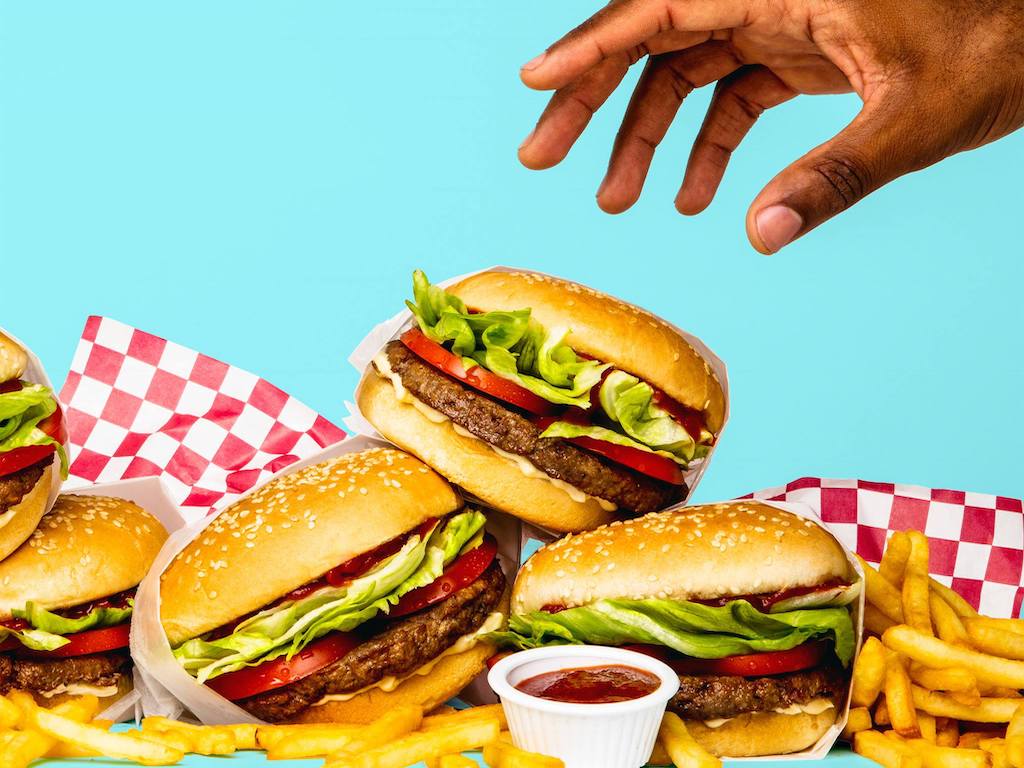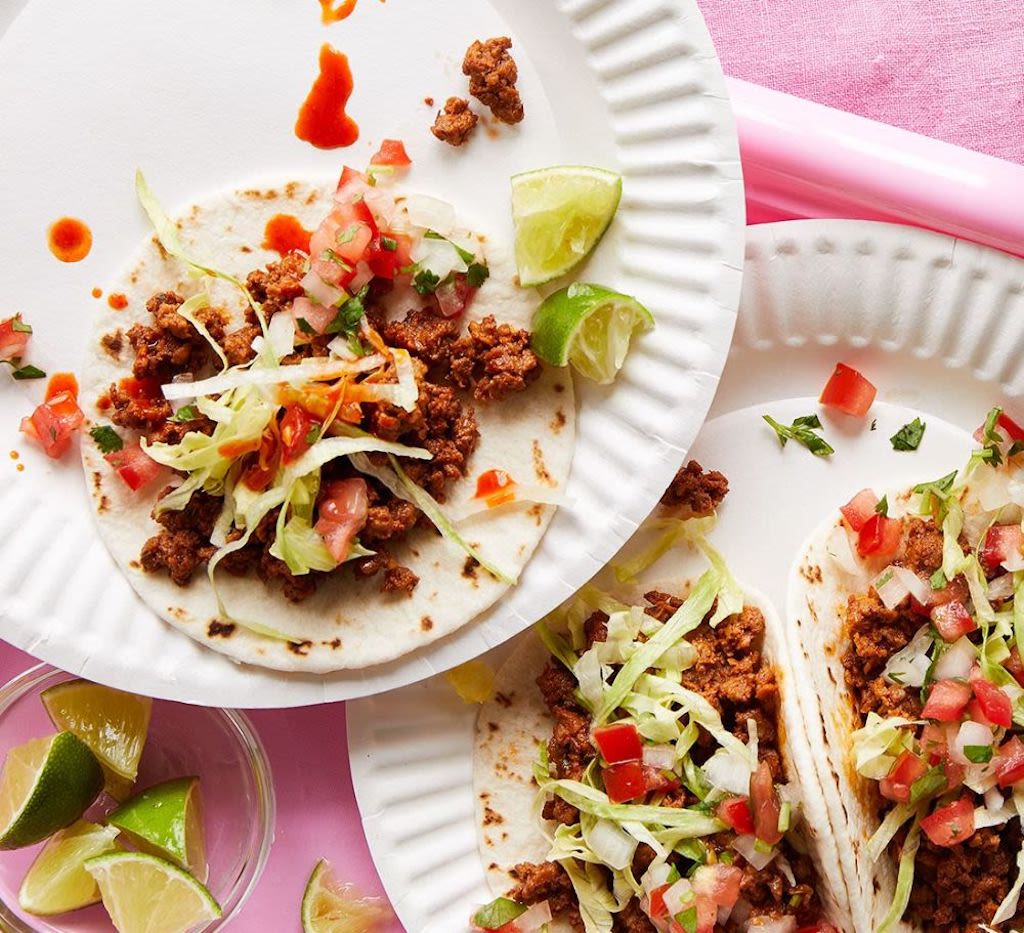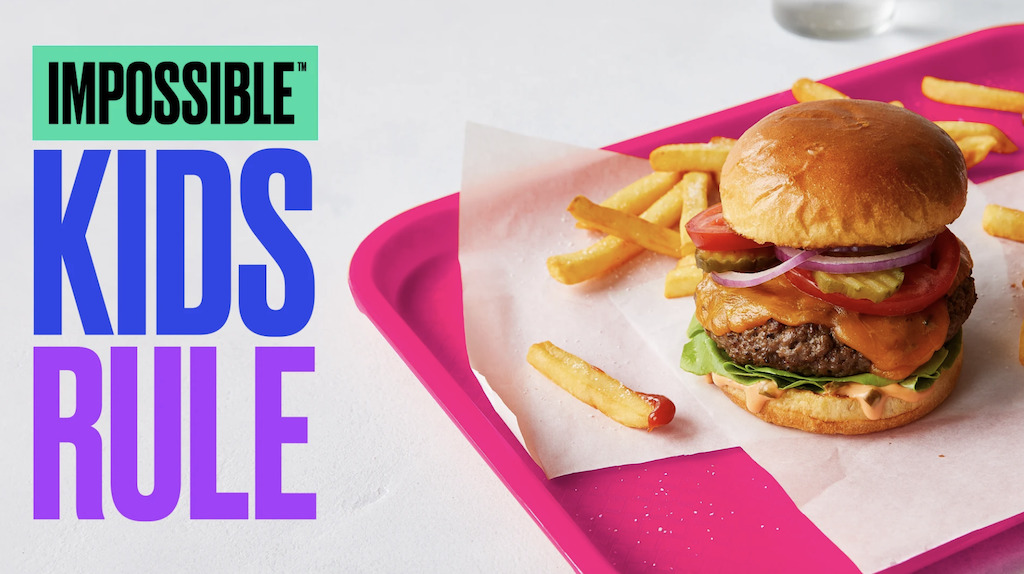4 Mins Read
Impossible Foods has announced that it has secured Child Nutrition Labels (CN Labels) from the U.S. Department of Agriculture (USDA), the food crediting statements providing federal meal guidance to schools across the country. The addition of CN Labels to Impossible’s plant-based meat products represents a “milestone for entering the K-12 market” and makes the food tech’s products eligible for National School Lunch funding, which could translate to huge environmental savings.
Silicon Valley food tech Impossible Foods has secured CN Labels for its Impossible Burger, which paves the way for K-12 foodservice market entry by as soon as Q3 this year, the company said on Thursday (May 6). Authorised by the USDA, CN Labels guide schools participating in federal Child Nutrition Programs on whether meals are contributing to federal meal requirements for nutrition.
The program is operated by the government’s Food and Nutrition Services (FNS), an agency that evaluates a product’s formulation, quality control and manufacturing process. After an examination of Impossible’s products in April, the body approved the food tech for CN Labels within the Alternate Protein category.

Commenting on the feat, Impossible Foods CEO and founder Pat Brown said: “Making Impossible products available everywhere people consume meat, which for kids often includes schools, is key to the mission of the company.”
“Schools not only play a role in shaping children’s dietary patterns, they play an important role in providing early education about climate change and its root causes. We are thrilled to be partnering with K-12 school districts across the country to lower barriers to access our plant-based meat for this change-making generation.”
Having secured the labels, the food tech says it will begin piloting K-12 foodservice this month in various U.S. school districts, including the Palo Alto Unified School District in California, Aberdeen School District in Washington, Deer Creek Public Schools and the Union City Public Schools, both in Oklahoma.
We are thrilled to be partnering with K-12 school districts across the country to lower barriers to access our plant-based meat for this change-making generation.
Pat Brown, Founder & CEO, Impossible Foods
Dishes that will be rolled out for school meals include plant-based Impossible Street Tacos, Impossible Frito Pie and Spaghetti with Impossible Meat Sauce. After the trial, school participants will be surveyed to understand whether these dishes are having a “positive effect on school lunch program participation rates next fall” as schools across the country begin to reopen from the pandemic.

Entering the K-12 foodservice market is a major part of Impossible’s mission to tackle unsustainable animal agriculture. Made from soy-based protein and its magic ingredient “heme” – which the food tech recently won a legal battle over – each Impossible Burger comes at a fraction of the environmental footprint of real meat, requiring 75% less water and 95% less land and emitting 87% fewer greenhouse gases than a conventional beef-based patty.
“Increasing plant-based menu options is a key part of our strategy to reduce carbon emissions by 34% by 2025,” said Michael Morris, senior manager in culinary offer implementation at U.S. foodservice contracting giant Sodexo.
“The Impossible Burger is a product we think teenagers are going to get excited about. We are interested in how the popularity of this low-carbon food can help effectively lower a whole district’s carbon footprint, while also getting students more engaged in thinking about their connection to the planet.”
Kids provide an enormous and largely unexplored opportunity for environmental progress.
Jessica Appelgren, VP of Communications, Impossible Foods
According to Impossible, children are increasingly aware of environmental issues, with their recent survey ahead of their Child Nutrition Program launch of 1,200 kids in the U.S. finding that over 80% are aware of climate change.

Once informed about the link between carbon-intensive meat and climate change, nearly 8 in 10 of children said they would reduce beef consumption and almost a third said they would reduce meat intake in general.
“Kids provide an enormous and largely unexplored opportunity for environmental progress,” commented Jessica Appelgren, vice president of communications at Impossible.
“They care about climate change and they want to do something about it, and data shows that they have a significant influence over family meal decisions. Our CN Label launch is just the beginning of…engaging this next crucial generation.”
The news comes on the heels of Impossible Foods’ signal of an imminent entry into the Australian and New Zealand market to step up its international presence. Outside of the U.S., Impossible is available in foodservice and retail in Hong Kong and Singapore, as well as Canada, where it has most recently landed a partnership with Burger King Canada to launch the Impossible Whopper nationwide.
As Impossible continues to expand aggressively, sources close to the company are saying it plans to float on the stock market, and will reportedly be seeking a valuation of US$10 billion or more.
All images courtesy of Impossible Foods.




